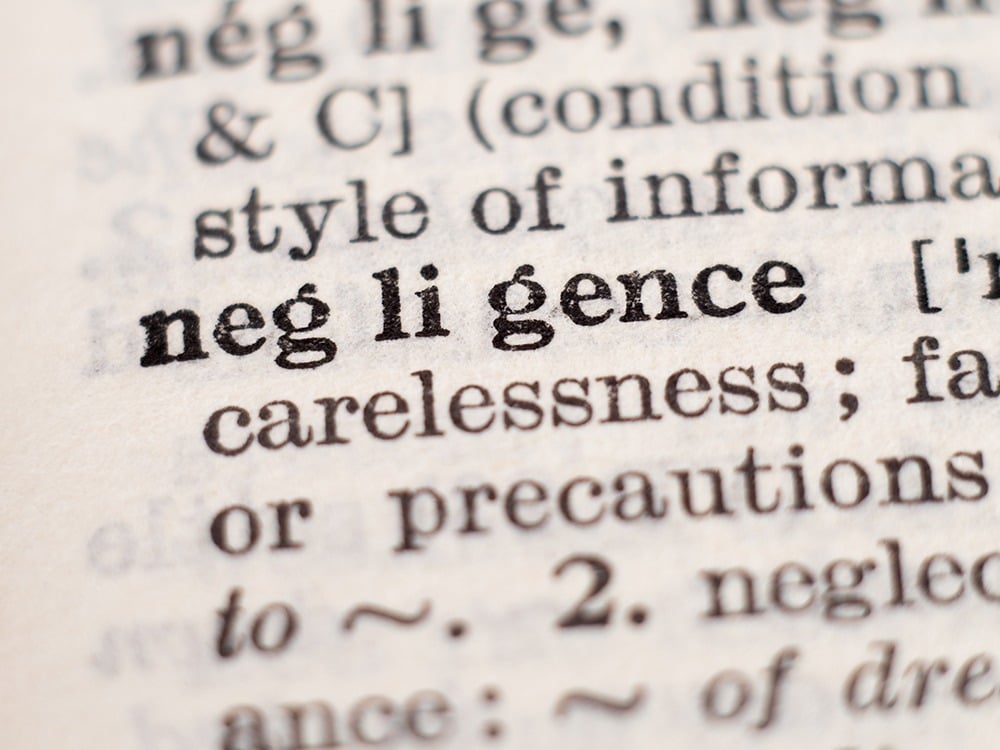How Can You Know if You Have a Case?
It is the first question asked of any Baltimore injury and accident lawyer. If the law does not recognize the claim, no matter how extreme the injury or damage, there is simply no case. A Plaintiff carries the burden of proving their claims. Many, if not most personal injury claims, involve allegations of negligence.

What is Negligence?
Maryland juries are instructed that negligence is doing something that a person using ordinary care, caution, and prudence would not do, or in fact, doing something that a reasonably cautious person would not do in a similar circumstance.
To prove a case for negligence in court, a plaintiff must show the following:
- The defendant had a duty to conform their conduct to a specific standard of care that prevents harm – or the risk of harm – to others
- The defendant failed to conform to their conduct
- That failure directly led to an injury
- That injury caused bodily or other damage to the Plaintiff
- The typical car accident claim is premised on negligence principles. A successful personal injury plaintiff must show that the defendant caused an accident that caution would have prevented by failing to adhere to the rules of the road or by otherwise failing to act responsibly.
If you have been injured because of someone else’s negligence, I can help you determine whether you have a legitimate claim and help you document, quantify, and prove it in a court of law. I’ve handled thousands of injury cases. I recovered millions of dollars for those injured by the negligence of others.

When Can I Sue, and is There a Time Limit?
If you have a case, you must act to protect your interests. Maryland law provides special time limits and notification requirements. An experienced personal injury attorney can guide you through these specific procedures. Most people are familiar with the “statute of limitations,” but what does that mean? Is there more than one? Is there any way around it?
In Maryland, a negligence action generally must be filed within three years from the date of injury.
If your claim is against a governmental entity, you have additional notification requirements and shorter periods within which you must act. These additional factors often make determining correct deadlines a complex task.
A seasoned attorney can protect your rights to file and pursue a claim. I offer a complimentary legal analysis to all potential clients. Contact me today to arrange for your free strategy session.




